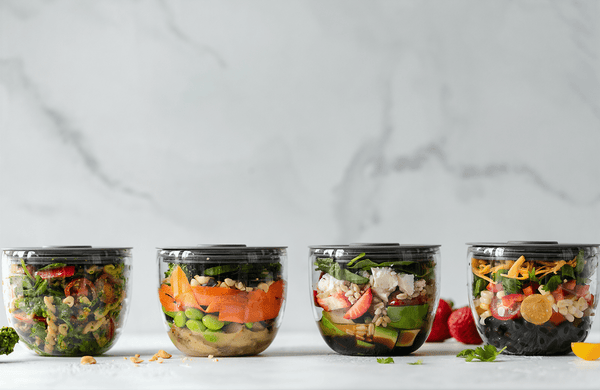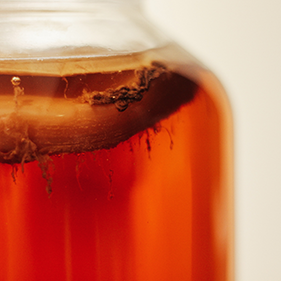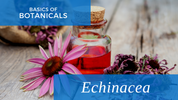Beyond the Fads: Bluebird's 2021 Nutrition Guide

Personal nutrition is a fickle thing. Each passing year brings the birth of new diet trends and the death of old ones (R.I.P. South Beach and juice cleanses). Just when you think you know what’s good for you, some controversial report reveals the “shocking” truth behind your go-to food staples and the hot new items to stock your pantry with instead.
It’s exhausting and unnecessary to try to chase diet fads. Every person has a completely unique genetic makeup and lifestyle that requires different amounts of different types of foods, minerals, and vitamins. However, many who are looking to improve their diets still look to the boundless amount of advice on the internet for answers.
Since you’ve found yourself here, read on for Bluebird’s list of tried-and-true nutrition picks that have withstood the test of time — and the changing tides of diet trends.
1. Plant-based protein
Yes, peas! If you feel like every other person you meet these days is #plantbased, you’re not far off: a quarter of American millennials between the ages of 25 and 34 now identify as either vegetarian or vegan. This growing trend has given way to more plant-based food products showing up in grocery stores and restaurants.
Both animal and plant proteins have their benefits. Animal products are the best complete protein sources; they contain all nine of the essential amino acids that human bodies don’t naturally produce. These amino acids are essential for allowing the body to break down and fully utilize the protein. Plants, on the other hand, are chock full of fiber, antioxidants, and phytonutrients that are completely absent from animal products.
Regardless of your preference for an omnivore or herbivore diet, it shouldn’t come as a surprise that adding even just an extra serving or two of plants to your daily intake can promote a variety of health benefits. This includes lower cholesterol and lower risk for heart disease. If you’re still worried about getting enough protein from plants versus animals, worry not - Food Revolution found that the percentage of calories coming from protein in tempeh, tofu, or green lentils is actually higher than in bacon or cow’s milk.
How to add plant-based proteins to your diet
Whether you’re eliminating meat from your diet entirely or just scaling back, here are some excellent green sources of protein to swap out with your go-to eggs and bacon:
- Hemp seeds
- Tempeh
- Lentils
- Edamame
- Chickpeas
- Black beans
- Quinoa
- Pea protein powder
- Mushrooms
2. Mushrooms
Mushrooms truly are an undervalued treasure among us. As far as nutrition goes, they’re hard to beat: mushrooms are packed with nutrients like potassium, vitamins B and D, antioxidants, riboflavin, and niacin. These nutrients aid in maintaining energy levels, hormone production, red blood cell production, heart health, and proper immune system functions. Additionally, they’re low-calorie, low-sodium, cholesterol-free, and fat-free, making them an excellent addition to any diet.
There’s a reason mushrooms are so good for us — it’s because we have a lot in common with them. In fact, many don’t realize how closely related humans are to fungi. 650 million years ago, our cellular structures were virtually the same. While humans evolved to have a stomach in which we digest nutrients, fungi evolved to digest their nutrients externally through cellular networks known as mycelium. However, both humans and mycelium still rely on the same system to digest nutrients: the microbiome.
The microbiome impacts several critical bodily processes, including sleep. Mycelium aide digestion and promote healthy bacteria in the microbiome, promoting homeostasis in the body.
How to add mushrooms to your diet
This might seem like a no-brainer, as most people who have visited a grocery store have seen mushrooms for sale. But, with so many varieties of mushrooms available, how do you know which one to get? Bluebird advises going for the polypores, a group of fungi known for their medicinal properties. Here are the top varieties to look for:
- Lion’s mane
- Turkey tail
- Chaga
- Reishi
- Maitake
- Shiitake
If you don’t quite have a taste for fungi, there are several other options for including them in your diet without having to eat them whole. Mushroom supplements are now becoming available in many natural grocery and health stores. Host Defense offers a variety of mushroom and mycelium supplements including powders, teas, oral sprays, and capsules, allowing even the pickiest eater to reap the benefits of incorporating mushrooms in their diet.
3. Elderberry

Meet the superstar superfood: elderberry. This fruit has appeared for centuries in Native American and folk medicinal practices with ties to a variety of benefits, particularly its ability to relieve symptoms of the cold and flu. Indeed, many turn to it today as a natural alternative to common ailments, but its benefits extend far beyond treating the sniffles.
The ultimate superpower of the elderberry is its rich antioxidant content: the highest of all berries, in fact. Antioxidants are natural components of foods that are able to remove free radicals from the body. Free radicals cause oxidative stress, which can lead to disease and premature aging, so having a diet that is high in antioxidants can act as a counterbalance.
There are two classes of antioxidants: flavonols and anthocyanidins. Interestingly, the coloring of a plant plays a role in its antioxidant makeup. The dark purple pigment of the elderberry reveals its high amount of anthocyanidin.
How to add elderberry to your diet
Many already use elderberry as a natural supplement or additive to their foods and beverages. The most popular method of consumption is as a syrup; however, there are also a variety of infused capsules, lozenges, and gummies available in health food stores. Likewise, you can also make your own at-home remedies by adding dried elderberries to a recipe or making your own herbal tea.
4. Probiotics & Prebiotics

Remember how we mentioned the microbiome? Here’s a bit more context: the gut microbiome is a network of trillions of microorganisms running throughout our digestive system that regulates important functions like weight, mood, and sleep as well as fighting infection and maintaining a healthy immune system. Known as the second brain, the gut produces 90% of the body’s serotonin. (For a deeper dive into gut health, check out our recent blog post Is CBD the Next Kombucha?)
The microorganisms that exist in the microbiome are called “microbes” and can be both beneficial and potentially harmful. When the balance of symbiotic (beneficial) and pathogenic (harmful) microbes is thrown off, the body may become more susceptible to disease.
All of this points to the fact that maintaining a balanced microbiome is crucial to general health. But how exactly do you promote a healthy gut?
Turns out you can modulate your own gut bacteria with your dietary choices. Probiotics are foods and supplements that contain live, active microbiota - the bacteria necessary for regulating the microbiome.
There are two primary types of probiotic bacteria:
- Lactobacillus: The most common probiotic found in fermented foods that aids in the digestion of lactose
- Bifidobacterium: Naturally present in the large intestine and responsible for fighting harmful bacteria and maintaining the immune system
Prebiotics, on the other hand, are indigestible fibers that serve as food sources to the existing microbes in your gut.
How to add probiotics and prebiotics to your diet
Probiotics are prevalent in some common foods, including yogurt, sauerkraut, and of course, kombucha. Kefir, a yogurty-milk drink that has been fermented using kefir grains, is an especially potent source of probiotics, containing more than 50 different types of bacteria. You can also take probiotic supplements in capsule or tincture form.
Prebiotics are so prevalent in many food sources that you’re probably already eating them without realizing it: the most common sources include garlic, onions, leeks, asparagus, bananas, and whole grains.
5. Hemp & CBD
The hemp renaissance is upon us!
This plant has long been recognized for its usefulness, as every single part of it can be utilized for different daily needs: food, clothing, fiber, plastic...you name it. And from a nutrition standpoint, it’s a gold mine. Hemp seeds alone pack a heavy dose of protein — just as much as a serving of beef or lamb, in fact. Additionally, they are one of the best sources for essential fatty acids. Much like the amino acids we discussed earlier, essential fatty acids are nutrients that cannot be synthesized by the human body and thus must come from the food we eat.
There are two main groups of essential fatty acids: linoleic acid (omega-6 group) and alpha-linolenic acid (omega-3 group). Both groups are critical to maintaining normal body functions. Hemp seeds contain an ideal 3:1 ratio of omega-6 to omega-3 fatty acids.
But wait, there's more! Hemp seeds also contain other important nutrients:
- Vitamin E
- Phosphorous
- Potassium
- Calcium
- Copper
- Sulfur
- Iron
- Zinc
There’s also this little ol' thing called CBD that we Bluebirds are big fans of. The hemp plant produces over 110+ molecules known as cannabinoids, most popular of which are CBD and THC. Most have probably heard these acronyms by now as they’ve recently been gaining national attention with the recent legalization of hemp and hemp-derived CBD in the 2018 Farm Bill. CBD users have reported a wide range of benefits, most notably its ability to regulate homeostasis in the body. Check out Bluebird's FAQ page for more details on how CBD interacts with the body and what its benefits are.
How to add hemp and CBD to your diet
There are so many CBD products available on the market today that you’re bound to find something that fits in seamlessly with your lifestyle and diet.
For those looking for the most comprehensive hemp product available, we highly recommend trying Bluebird’s Hemp Complete CBD oil, a full-spectrum hemp extract with CBD, CBDA and an additional serving of steam-distilled terpenes. This product is essentially like juicing the whole cannabis plant. Bluebird’s other CBD oil blends also contain organic hemp seed oil as a carrier oil, meaning you’ll get the benefits of CBD plus all the advantages of adding hemp seeds to your diet when you use our products.
Don’t love the taste of hemp? Try capsules! Bluebird offers our Hemp Classic, Hemp Complete, and Hemp Signature blends in soft gels format for a consistent serving size and a convenient, taste-neutral CBD delivery.
We also have three Flavored CBD Oils and CBD Gummies for a more enticing flavorful experience.










